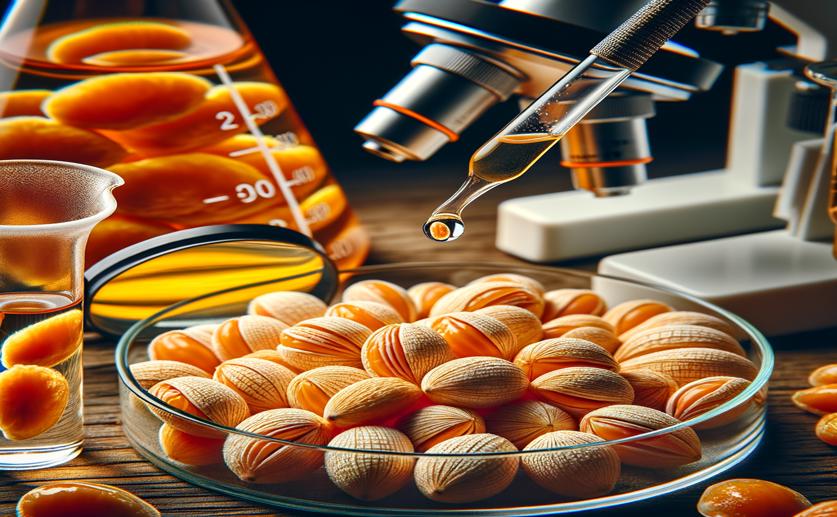
Purifying and Studying a Key Enzyme from Sweet Orange Seeds
Jim Crocker
8th June, 2024

Image Source: Natural Science News, 2024
Key Findings
- Researchers at Huazhong Agricultural University isolated and purified an enzyme called LDLH from sweet orange seeds
- LDLH is highly stable, maintaining nearly 100% activity in both acidic and alkaline conditions and after thermal treatment
- The enzyme's activity can be enhanced or reduced by specific ions, suggesting potential methods to control citrus bitterness
References
Main Study
1) Purification and characterization of limonin D-ring lactone hydrolase from sweet orange (Citrus sinensis (L.) Osbeck) seeds.
Published 7th June, 2024
https://doi.org/10.1002/jsfa.13650
Related Studies
2) Citrus Taste Modification Potentials by Genetic Engineering.
3) A novel electrochemical interdigitated electrodes sensor for limonin quantification and reduction in citrus limetta juice.



 30th May, 2024 | Jenn Hoskins
30th May, 2024 | Jenn Hoskins